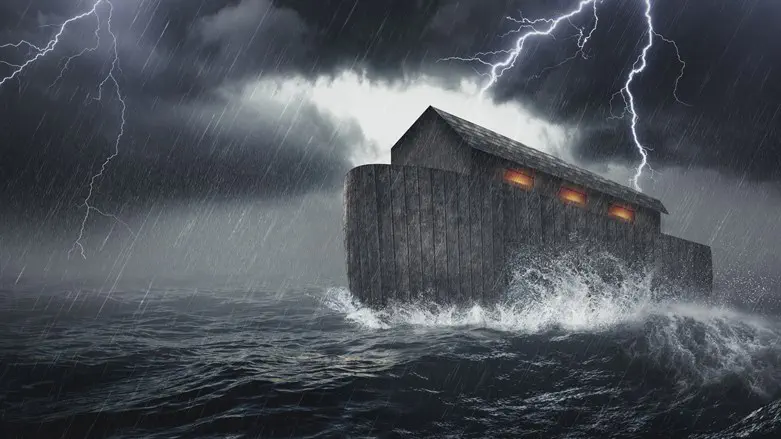
Over the past two weeks, it has become apparent that many unaffiliated Jews have had a sudden awakening in Jewish identity. This provides a vital opportunity for us, as knowledgeable Torah Jews to give them a connection to Yiddishkeit, now when they are open to it. The responsibility to act is ours, as the following vignette highlights.
I study with a Jewish attorney named Kyle, who grew up affiliated with Reform. At my suggestion, he started to read the ArtScroll Stone Chumash on his own.
When he finished Parashas Noach, he had a question. He had read in the Stone Chumash that the Mabul is called “Mei Noach,” because on a certain level, it was Noach’s fault that the Mabul came. Kyle asked me if I could clarify this for him.
I responded that only Noach could have saved his generation, yet he did not. For example, the Zohar teaches that Noach did not daven adequately for the people, unlike Avraham, who repeatedly davened on behalf of Sedom. Furthermore, the Midrash compares Noach to a captain who saves himself while letting his passengers drown, because on some level he was only concerned with the spirituality of his own family and was not adequately bothered regarding the rest of society.
After I said this, Kyle thought for a moment and then had another question.
This question startled me.
He said, “Rabbi Levine, you are teaching me Torah, but why aren’t more Orthodox Jews helping the assimilated Jews that they know? Isn’t that Mei Noach? Aren’t the Orthodox Jews the only ones who can save their secular brethren?”
This time, I had no answer.
Noach was responsible for the Mabul because he should have done more. He could have done more - but so can we.
Can we answer Kyle’s question? Can we do something for our fellow Jews - both in America and Israel - who are living a spiritual Holocaust - especially now when they are open to connection?
Here are some suggestions of things anyone can do, based on my kiruv experience:
If you have relatives who are not observant, start with your family, because you are their closest connection to Yiddishkeit. With sensitivity and wisdom, think of ideas. Can you call them to wish them a good Shabbos? Can you make a Chanukah party for them to join this year? Can you email them to see how they are doing in the current painful situation, and see if you can connect because of it?
Do you have neighbors or co-workers who are Jewish but not observant? Who will reach out to them, if not you? Can you share an article from Aish.com with them, which is full of content about the situation in Israel? Can you invite them for a Shabbos meal? Can you drop off extra challah for Shabbos?
The Zohar criticizes Noach for not davening on his generation’s behalf, because perhaps through prayer he could have saved them. This teaches that we also have an obligation to daven for our fellow Jews to return to Torah and mitzvos.
In the Birchas HaTorah that we recite each morning, Chazal included a phrase, where we daven for “tze’etzaeinu,” for our own children. The Chofetz Chaim lists that as one of the places a parent should beseech Hashem that his children go on the Torah’s path. In the phrase following, we daven for “tze’etzaei amcha beis Yisrael,” for the children of Klal Yisrael. We should take the opportunity to focus on that phrase daily and daven for the not-yet-observant Jews we know.
It is our obligation, our responsibility, and our mandate.
If not, what will you answer Kyle?
Rabbi Menachem Levine is the CEO of JDBY-YTT, the largest Jewish school in the Midwest. He served as Rabbi of Congregation Am Echad in San Jose, CA from 2007 – 2020. He is a popular speaker and has written for numerous publications. Rabbi Levine’s personal website is https://thinktorah.org.